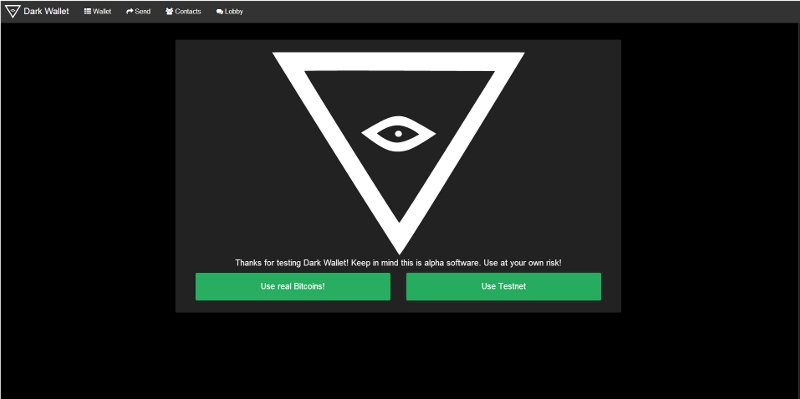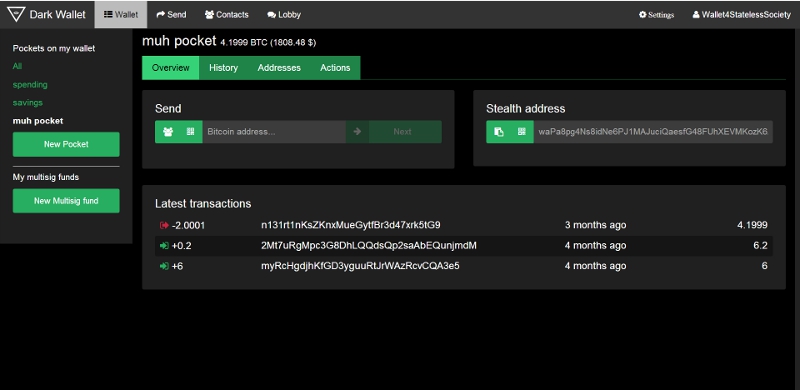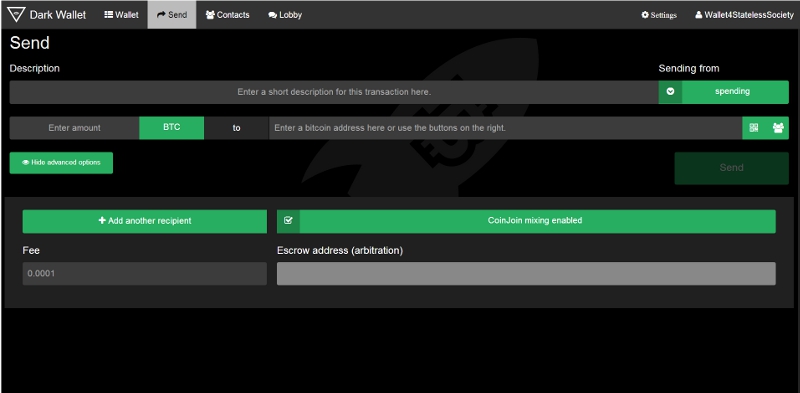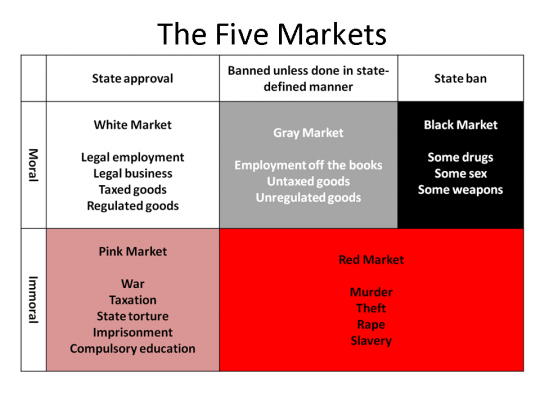As some of you may be aware, the Dark Wallet project was released to the public May 1st, 2014. Dark Wallet is developed by UnSystem, an organisation that includes among other great minds, Cody Wilson. Wilson is (in)famous for developing the worlds first 3d printed gun, The Liberator. Dark Wallet is in its alpha stage of development, so it is not advised to use it for anything other than testing purposes.
Dark Wallet is a suite of tools for storing, sending and receiving Bitcoins that seeks to protect and anonymise the use of the crypto-currency. It stands against those who would seek to take the crypto out of crypto-currency.
If you do wish to test it out yourself, you can find it by going to UnSystem’s page and navigating to the github. From there the source code is available to download. If you are using a windows system, download the .zip. If you are on OSX, you can choose either the .zip or the tar.bz. If you are using Linux, you should probably be aware of what archiving programs are on your system and choose accordingly. Once it is downloaded, extract the folder to a known location.
To install the extension to your Chrome Browser, go to Settings > Extensions, then tick the Developer Options box, and then click “load unpacked extension“, find the folder you have just extracted and hit OK.
You will now have Dark Wallet installed on your browser.
Upon running Dark Wallet for the first time, you are greeted with a clear, simple and flat interface. From here you are prompted to create an account, you can choose to use the Bitcoin Testnet if you wish. This is alpha software, so this is the wise choice. The Testnet is a parallel Bitcoin architecture used for the testing and development of Bitcoin related software. It is designed in such a way that the coins in the system remain worthless.
Once your account is created, you are taken to your wallet. From here you can manage and create “pockets,” which are administerable sub-wallet addresses, and check your transaction history. There is a Multisig fund feature, which allows the creation of a wallet that is required to be signed by multiple keys in order to initiate a transaction. This seems especially useful for business and organisations where the person administrating the Bitcoins is not necessarily the owner of the Bitcoins, and due to the irreversible nature of these transactions, accountability is important.
In the send section are the basic tools to send your Bitcoins to other addresses, with added advanced options such as “CoinJoin” which is a feature that mixes transactions from different users together, making them difficult to track through the blockchain. The public nature of Bitcoin transactions means there is a risk of anonymity being compromised if a malicious party is interested enough.
There is also an escrow option that is not yet active. Presumably this will allow transactions to be held at an address by a third party arbiter, if a dispute arises between two parties, the arbiter can have final say as to which direction the transaction flows. If implemented properly, this could be an effective decentralised antidote to monolithic institutions such as Paypal and banks in the role of a dispute resolution service. This is a much needed standard, if Bitcoin is to gain mainstream traction.
Other features include a system for keeping contacts, and right now there is a public chat under “lobby”. This is a great feature to have right now, the lobby moves randomly from bouts of nonsense and pointless trolling to answering questions about the software, and people sending and receiving test coins to each other so they can get a sense of how Dark Wallet works. If you can’t get a hold of any Testcoins, numerous “faucets” are available that will send you a reasonable sum of TestCoins to your wallet. Here is one that I, and others have had success with.
While the alpha is not without it’s bugs, the design and features available have great potential to proliferate and become a mainstream Bitcoin wallet. In doing so, it could make Bitcoin unassimilable into the current financial paradigm. This is possibly the greatest potential that Bitcoin can offer. This concept, along with the possible future Dark Market may be an extremely robust and open alternative to the current white market system.
Dark Market is at present a proof of concept not currently in active development, as the UnSystem team wish to focus their current efforts on Dark Wallet. To it put simply, Dark Market is a market platform with the same focus on privacy and anonymity as Dark Wallet. A P2P distributed counter economy, which can not easily be shut down – in Cody Wilson’s words, market “where no one has to be Dread Pirate Roberts”.
While an initial look at Dark Wallet, and the concept Dark Market may seem like they are best suited for selling contraband, there is no reason that this, as a platform, could not eventually become a Grand Bazaar – a new Amazon or eBay free from centralised restriction, utilising cryptography and peer to peer networking to facilitate transactions and resolve disputes.
A parallel grey and black market that seduces the white.
Right now there is a battle between those who see crypto-currencies as a solid foundation for a modern counter-economy, those who wish to sterilise and recuperate it into the state approved white market and those who simply want to destroy it. This is imperative to them because only the white market can effectively be controlled by the state, only in the white market can taxes be sought on the movement of goods and services and regulation be placed on what we trade. Dark Wallet equips us against this, whether we are self-consciously engaging in the counter-economy or not. As anarchists it is not only ethical, but conducive to our goal to engage and expand the counter-economy – to engage in voluntary exchange without feeding the state. The war between these markets is an old one, and Dark Wallet represents a new weapon in that battle.











